Instituted to promote the NHL's participation in the upcoming Olympics
in Nagano, Japan, the first Olympics to be supported by a suspension of
the NHL season to allow the best players in the NHL an opportunity to represent their home
country at the Games, the 1998 NHL All-Star Game was the first to use the World vs. North America format. The
new format would last for five years, and
during those various All-Star games, each player would wear the flag of
their home country on their respective All-Star jerseys.
Dominik Hasek (World) and Wayne Gretzky (North America)
in their 1998 NHL All-Star Game jerseys, complete with a
flag patch for each player's home country
On this date in 1998, for the first year under the new format and for the one and only time, each player would also wear the
flag of their native country on their NHL club team jersey during the weekend's 1998 Super Skills Competition. For some players, this
would be the only patch they would ever wear on a particular style of NHL jersey, and for knowledgeable collectors, it's a chance to create a interesting jersey with a unique story behind it.
Wayne Gretzky wearing a Canadian flag on his New York Rangers
jersey - the only patch he would ever wear on a Rangers jersey
For
the 1998 Super Skills Competition, the North American players would
wear their dark road jerseys while the World Team would dress in their
home whites.
The
array of flags in use was quite impressive, with North America being
represented by the both Canada and the United States, while the World
Team sported the flags of the Czech Republic, Finland, Germany, Latvia, Russia, Slovakia and Sweden.
Among
the most decorated jerseys from that event were from the host Vancouver
Canucks. While most of the flags were located in the traditional patch
location of the upper right chest, the Canucks were already wearing the
1998 NHL All-Star Game patch in that location as hosts of the event, and
chose to locate the flag patches for Canadian Mark Messier (dark jersey) and Russian Pavel Bure
(light jersey) to the top of the right shoulder. This pair of jerseys
also illustrates how the new format would sometimes pit teammates
against each other for the first time in an NHL All-Star Game, a new
quirk of the World vs. North America format not seen before.
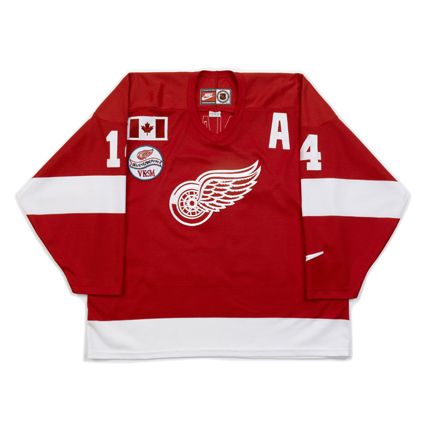
Winners at the event were Teemu Selanne - Puck Control Relay, Scott Niedermayer - Fastest Skater (13.56 second lap around the rink), Ray Bourque, Peter Forsberg and Shanahan - Accuracy Shooting, Al MacInnis - Hardest Shot (100.4 mph) and Dominik Hasek - Goaltenders Competition.
Today's featured jersey is a 1997-98 New York Rangers Wayne Gretzky jersey with the Canadian Flag patch on the upper right chest as worn only during the 1998 Super Skills Competition during the NHL All-Star Game weekend.
This is special since it is the one and only additional patch Gretzky would ever wear on any Rangers jersey during his three seasons in New York.
It's
actually a little surprising that the flag patch was located on the
right chest, as the Rangers have had a history of relocating various
other patches to both the right and left shoulders due
to the diagonal cresting on the front of their jerseys interfering with
the standard patch placement commonly used by other clubs.
We have replicated a number of the jerseys from that event for our own collection, and here are the rosters for you to choose from if you would like to add a flag to a jersey you already own or create a new, unique project for your collection. At the time of this writing, the flag patches can easily be obtained on ebay, just look for the ones with the quarter inch wide white border around them as shown above. A search for "NHL flag patch" is a great way to start.
Today's video section is the entire 1998 NHL All-Star Game. Unfortunately, we were unable to find any footage of the Super Skills Competition at this time.


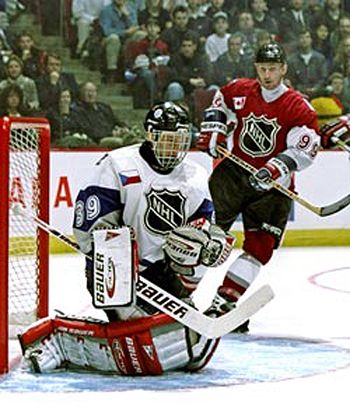
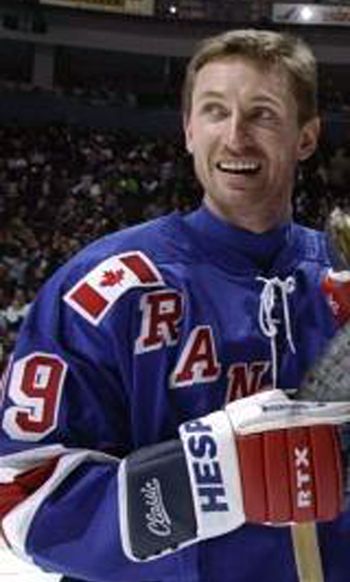
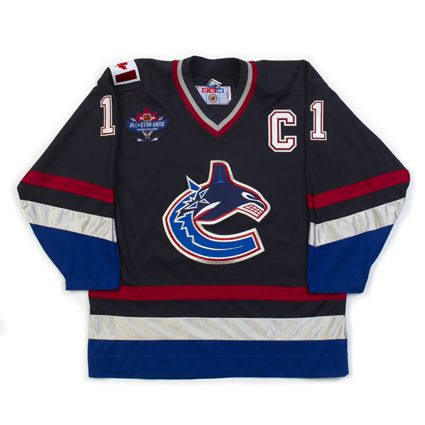
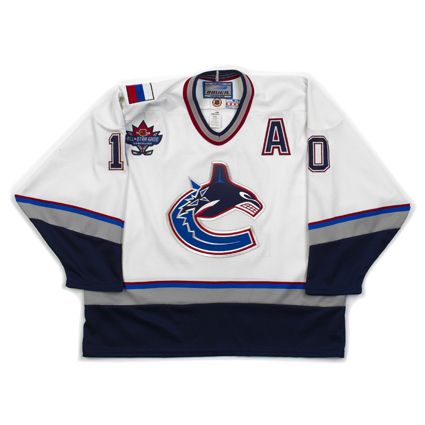
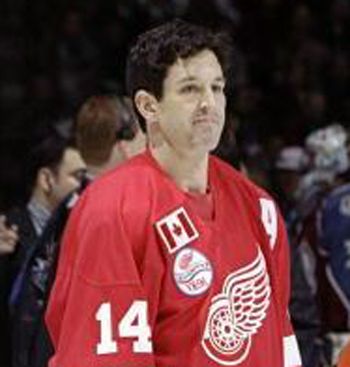
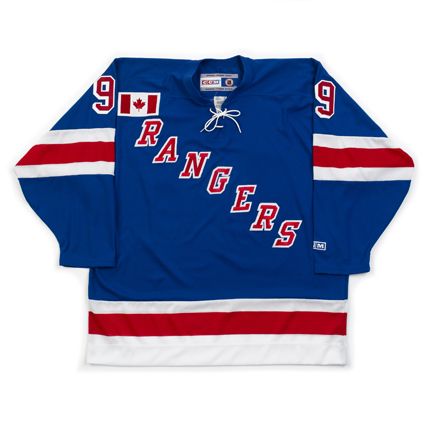
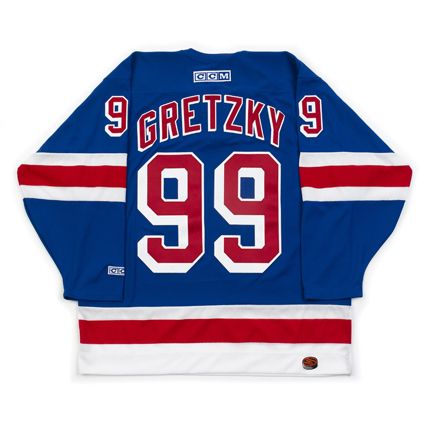
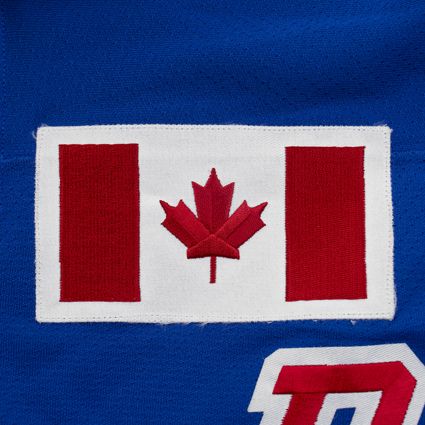










No comments:
Post a Comment
We welcome and encourage genuine comments and corrections from our readers. Please no spam. It will not be approved and never seen.